
 Flash News
Flash News
Poll/ DP ranks first in Shkodra
Bullets fired at car, Albanian injured in Switzerland
The hotel was built without a permit, the Gjirokastra Prosecutor's Office seizes the building, the owner is imprisoned
Power outages in Spain and Portugal, services 'paralyzed'
Richard Grenell reacts to the news reprinted by Politiko: It is false!
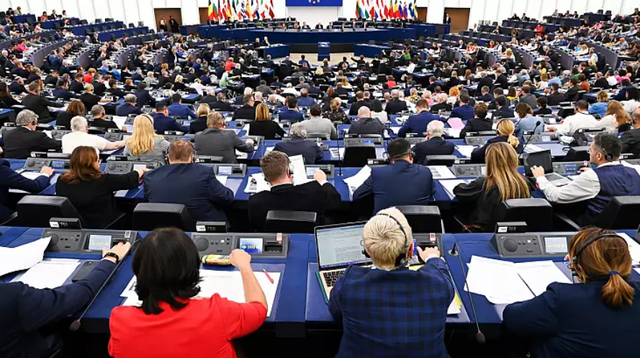
Hungary is no longer a fully functioning democracy, members of the European Parliament said in a recently released report on Thursday.
Instead, the country should be considered a "hybrid regime of electoral autocracy" in which elections are held regularly but without respecting basic democratic norms.
"There is a growing consensus among experts that Hungary is no longer a democracy," the lawmakers said, citing a series of international indexes that have downgraded Hungary's status in recent years.
In their resolution, MEPs point the finger directly at Prime Minister Viktor Orbán, who has been in power since 2010, and condemn his government's "deliberate and systematic efforts" to undermine the EU's core values.
Lawmakers raise concerns about a long list of fundamental rights they believe are under threat, including the electoral system, judicial independence, privacy, freedom of expression, media pluralism, academic freedom, and the protection of minorities and asylum seekers.
MEPs also criticized EU institutions for allowing democratic backsliding to go unchecked.
The parliament "deeply regrets that the lack of decisive EU action has contributed to a breakdown of democracy, the rule of law and fundamental rights in Hungary, turning the country into a hybrid regime of electoral autocracy," the report said. intermediate.
It is believed to be the first time an EU institution has declared that a member state is not a proper democracy, an essential prerequisite for joining the bloc.
Each year, Hungary receives over €6 billion in EU funds, most of which support cohesion projects.
In addition, Hungary remains the only member state without an approved COVID-19 recovery plan. The commission has requested reforms in exchange for the green lighting plan, worth 7.2 billion euros in grants.
As the energy crisis worsens and inflation rises, Budapest is beginning to make moves towards Brussels in a bid to free up cash. Prime Minister Orbán signed a decree earlier this month creating an anti-corruption agency, along with a special task force of government and non-government delegates.
The Parliament's report asks the Commission to refrain from approving the recovery plan until all rule of law reforms are in place and to prevent funding for cohesion projects that could lead to legal breaches.
Source: Euronews
Latest news


Analyst: Edi Rama is an ordinary fraudster
2025-04-28 22:30:06
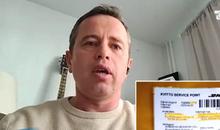
Immigrant in Sweden accuses CEC of violating the secrecy of his vote
2025-04-28 21:44:30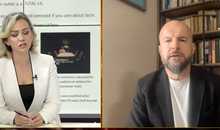

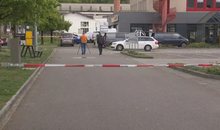
Bullets fired at car, Albanian injured in Switzerland
2025-04-28 21:02:07
Albanian caught with 2 million euros of cocaine in his car
2025-04-28 20:45:20

Why does Rama threaten citizens who complain about corruption?
2025-04-28 20:17:54

Gjekmarkaj meeting with residents in Tale 2: We win 5:2 in the Lezha region
2025-04-28 19:55:24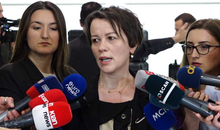
CEC tests PEI devices to be used on May 11
2025-04-28 19:36:24


"Enough is enough", Rama is distracted by young people during the meeting
2025-04-28 19:12:28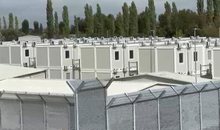
"La Stampa": 16 migrants have "disappeared" from the Gjadri camp
2025-04-28 18:55:34


A person's eyes can tell if they have 'mental problems'
2025-04-28 18:05:09


Cardiovascular diseases, 8% of patients at risk for cardiac arrest
2025-04-28 17:19:40
Xhaferri: The next Prime Minister from the DP will be for all citizens
2025-04-28 17:11:44

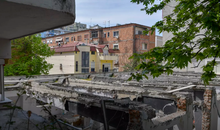

Children with developmental and speech delays due to "cellphone in hand"
2025-04-28 16:22:51
Power outages in Spain and Portugal, services 'paralyzed'
2025-04-28 16:14:38

Richard Grenell reacts to the news reprinted by Politiko: It is false!
2025-04-28 15:52:47

Foods with vitamin A, here's why they are vital for eye protection
2025-04-28 15:32:34



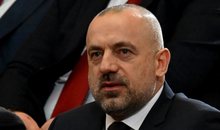
Kosovo issues arrest warrant for Radočić for war crimes
2025-04-28 14:42:59

Putin declares ceasefire in Ukraine!
2025-04-28 14:12:44


"Partizani" file, GJKKO rejects the request for the judge's disqualification
2025-04-28 13:35:08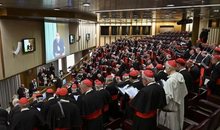
Election of the new Pope/ Conclave to meet on May 7
2025-04-28 13:28:50

Cross-border terrorism? India and Pakistan continue to exchange fire in Kashmir
2025-04-28 13:01:20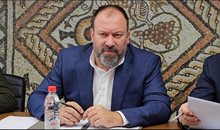
Arbjan Mazniku is being questioned by the Tirana Prosecution Office
2025-04-28 12:37:37
Video/ Tragic in Turkey, 3 people lose their lives after landslide
2025-04-28 12:22:54
The Pope of humane values who inspires hope among Albanians
2025-04-28 12:21:48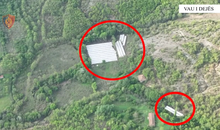
2200 cannabis plants and 578 seedlings seized in Vau e Dejës
2025-04-28 12:09:51
Quarrel between son-in-law and mother-in-law in Fier, police intervene
2025-04-28 12:01:28
The opposition's trap with lobbying, and the pit where Rama's media 'heads' sank
2025-04-28 11:58:31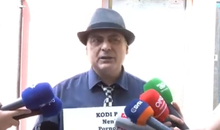


3 cannabis plantations discovered in Belgium, 5 Albanians arrested
2025-04-28 11:21:01

Two cars collide on the Lezhë-Manati axis, 5 injured
2025-04-28 11:02:08
Trump thinks Zelensky is ready to give up Crimea
2025-04-28 10:47:43
Crossing the line? DW: Conservative Catholics against blessing for all
2025-04-28 10:38:58


Meta calls on Albanians: Vote no. 1! Great Albania is very close
2025-04-28 10:01:03
Photo/ This is the 58-year-old man who was executed with three bullets in Vlora
2025-04-28 09:44:12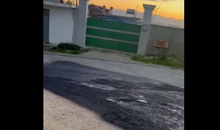

Trump doubts Putin's desire for peace
2025-04-28 09:08:27
Defrauding citizens with fake banking messages, 23-year-old arrested in Tirana
2025-04-28 08:48:39
Border controls between Albania and Kosovo are lifted
2025-04-28 08:33:30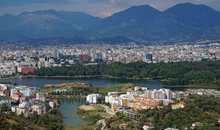


EU pulls out US academics after Trump freezes funding
2025-04-28 07:33:30

Morning Post/ In 2 lines: What mattered yesterday in Albania
2025-04-28 07:10:22

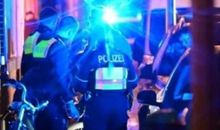







Collision between three vehicles in Lushnja, four injured
2025-04-27 18:48:40
Accident on the Lushnja bypass, "Range Rover" crashes and catches fire
2025-04-27 18:29:38

5 small habits that can change your life
2025-04-27 17:43:38

Will Pope Francis' successor be a Hungarian?
2025-04-27 16:37:36





Two Albanians arrested in Germany, one wanted in two countries
2025-04-27 14:51:03
From sea salt to beer, discover the most dangerous foods for our health
2025-04-27 14:34:30


Two charged with allegedly raping former DP MP's son in Lundë
2025-04-27 13:29:21

Thumanë/ A gunshot is fired at a car, the perpetrator is identified
2025-04-27 13:00:06
